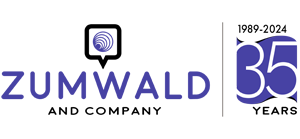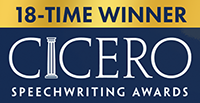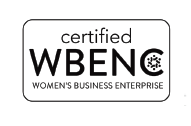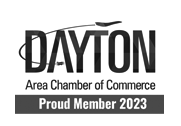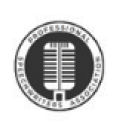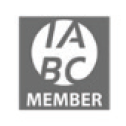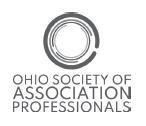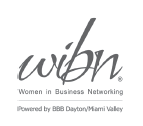7 ways to rock your next acceptance speech
Your audience will thank you if you skirt the predictable – and instead give them something to think about or act upon after the evening is over.
 For many executives, receiving an award is a good news, bad news thing.
For many executives, receiving an award is a good news, bad news thing.
First, the good news:
“Congratulations! You’ve won an award for your outstanding achievements!”
(And now the bad news):
“You’ll have about five or 10 minutes to deliver an acceptance speech after receiving your award.”
Yikes! Five or 10 minutes?
How will you start?
What will you say?
How will you say it?
Whom will you thank?
How will you end?
To calm your fears, event planners sometimes make light of their request for your remarks by telling you something like this:
“Don’t worry, Joe. We’ll start out with a video highlighting your accomplishments. So your acceptance speech is really more of a ‘thank you’ to whomever you see fit.”
But is it really?
Unfortunately, we’ve all sat through way too many awards nights where the acceptance speeches have been … well … downright boring. Predictable. Forgettable.
Don’t get me wrong. Winners try. They try really hard. But they get stuck in a loop of what they think an acceptance speech should be. Not what it could be.
When you think about what could be, the possibilities are endless!
Acceptance speeches can be an opportunity to change the way people think by persuading them to consider something they’ve never considered before.
Or, they can be an opportunity to change the way people behave by inspiring them – (based on the road you’ve traveled) – to do something even greater.
Now. Are you feeling a little more jazzed?
Here are seven tips to get you thinking differently about your next acceptance speech.
1. Be truly grateful. And mention others.
 Yes, you need to show gratitude – real, genuine, personal gratitude to the organization bestowing the award, and to the people surrounding you who helped you along the way.
Yes, you need to show gratitude – real, genuine, personal gratitude to the organization bestowing the award, and to the people surrounding you who helped you along the way.
So think long and hard about this.
Who in your circle deserves your authentic mention – and more importantly – why?
A few years ago, when a chief technology officer accepted a competitive business award on his company’s behalf, his humility shone forth. Why? Because he named specific people – and thanked them one by one – for their specific contributions to the company’s success:
- He thanked the awarding organization for taking the time to recognize manufacturing innovation.
- He thanked his 63 employees “for your genius that drives us forward.”
- He thanked his majority partner for “believing in us to invest in us.”
- He thanked his organization’s founder “for risking it all to start the company in 1995.”
- And he thanked his wife “for being my rock on our journey to improve people’s lives with laser processing technology.”
But gratitude’s only part of it.
2. Be a tad unpredictable.
What else might you say to change the thoughts or behaviors of the particular people expected to be in your particular audience?
- Are they clients?
- Potential customers?
- Stakeholders?
- Educators?
- Industry colleagues?
- Business associates?
- Mentors?
- Mentees?
When planning your acceptance remarks, think strategically about One Big Idea you want to share that has real meaning to the unique audience you will address at the awards event.
Earlier this year, Oprah Winfrey did just that by tying One Big Idea to a current event. When she became the first African-American woman to receive the Cecil B. De Mille Award at the Golden Globes, she indeed thanked people: Dennis Swanson, Quincy Jones, Gayle King and Stedman Graham.
But she did something else.
In the end, Oprah seized the groundswell of the #MeToo movement, passionately inviting entertainers in the audience to be the “magnificent women” and “phenomenal men” fighting hard to become “the leaders who take us to the time when nobody ever has to say ‘Me too’ again.”
3. Decide what your acceptance speech needs to do.
If you want to change the way people think, then persuade your audience to consider something they may have never considered before.
In his acceptance speech for a Business Hall of Fame award, Rick Schwartz of Winsupply suggested that business leaders in the audience renew their commitment to our nation’s free enterprise system because it gives people with desire the chance to earn their own success:
I believe that Dayton’s continued prosperity – in every economic, cultural or civic program we undertake – depends on people who believe in free enterprise and are willing to help others participate in it.
As business leaders in Dayton, all of us need to do whatever it takes to create jobs and opportunities for others so they have the chance to work hard, pursue happiness and earn their own success.
• It is this difference that has defined the course of Dayton’s history.
• It is this difference that has molded Dayton’s heritage, tradition and success.
• It is this difference that helps everyday, ordinary people flourish.
 If you want to change the way people behave, then inspire them to do something great.
If you want to change the way people behave, then inspire them to do something great.
In his acceptance speech for the Julian Marcus Lifetime Achievement Award given by Employment for Seniors, Chad Delligatti of InnoSource told his own story to inspire the audience to “make a choice to advocate for the mature job seeker” over the age of 50 by getting connected – or reconnected – to Employment for Seniors:
A minute ago, I told you the reason I said “yes” to Rocky Parker and decided to help Employment for Seniors in the first place.
It’s because I have a soft heart for people facing difficult circumstances through no fault of their own.
Plus, my company, InnoSource, has human resources expertise that I could bring to the table.
But that’s not the whole story.
Rocky’s 2003 invitation came two years after the September 11 terrorist attacks. By then, 2.5 million people in this country, many over the age of 50, had lost their jobs.
That included members of my family, and fathers of my friends.
So I saw what happens to people over the age of 50 who were displaced, but still wanted to work. In fact, they still needed to work – not only to support their families but also to keep a meaning and a purpose in their lives.
I saw for myself the havoc that a job loss can wreak on breadwinners and families through downsizings and rightsizings, mergers and acquisitions. Circumstances beyond a person’s control.
I felt a deep compassion for these men and women who were stunned, lost, alone and afraid, paralyzed with fear by their own new fork in the road.
Many of them had worked at the same place for 30 years, so they had no resume. No interviewing skills. And often no experience with new technology.
As we know, many people identify themselves based on what they do. So if they lose what they do, they also lose who they are.
That’s why I decided it was worth the fight to help keep Employment for Seniors whole and healthy.
 4. Share something about yourself that your audience does not know.
4. Share something about yourself that your audience does not know.
To connect heart to heart with the people in the audience who are coming to cheer you on, give them a window to your world.
Several years ago, when executive Barbara Hayde received a YWCA Dayton Women of Influence Award, she wanted people to know the impact you can have on someone with just a few simple words of encouragement. So she shared this:
Back in the 1980s, when I ran the Dayton operation of Ohio Works – a program that moved women from welfare to work – I hired a young African-American man by the name of Robert E. Johnson.
After a year, I told Robert I wanted to promote him to my second-in-command – quite a well-deserved promotion!
He just stared at me.
His slow-to-arrive response was, “I just don’t think I can do that job.”
I said, “Robert – I know you. When you try hard enough, there isn’t anything you can’t do.”
Today Robert E. Johnson is not only a Ph.D., but he’s the president of Becker College in Worcester, Massachusetts.
Not long ago I caught up with Robert, who told me something I’ll never forget.
He said to me:
“You are the reason I have advanced to this point.
“You are the person who told me I could do whatever I wanted to do.
“Your encouraging words changed my life.”
5. Give your remarks a title that embodies your theme.
Even though the title of your award acceptance speech will never be revealed during the event, coming up with just the right title is still a good idea.
Here’s why:
A title will not only help you solidify that One Big Idea in your head (see tip 2) but also help you focus on your message as you deliver your remarks on the big night.
Here are a few examples of award acceptance speech titles that helped executives get more clarity on their message:
- “When You Come to a Fork in the Road, TAKE IT!”
- “Where Will Our New Leaders Come From?”
- “Aunt Peg Would be Proud”
- “Imagine the Impact You Can Have”
- “We Must Give Everyday, Ordinary People the Chance to Earn Their Own Success”
6. Link your remarks back to the organization and the event.
If you are truly grateful to the organization for bestowing this honor upon you, show it.
 Do some research on the organization and the award: what it’s all about (the precise criteria), how and why it came about, the honorees who came before you and any other recipients besides yourself this year.
Do some research on the organization and the award: what it’s all about (the precise criteria), how and why it came about, the honorees who came before you and any other recipients besides yourself this year.
Then decide what you can say about one or more of these threads. This is classy and shows profound respect for the people who are putting you in the limelight.
During his acceptance speech for a prestigious civic award, businessman Ron Budzik told a story about Jim “Mac” McSwiney, a mentor of his and CEO at the former Mead Corp. (now MeadWestvaco). Mac had won the same award from the same organization 28 years ago:
In 1985, Mac stood on this stage and accepted the Citizen Legion of Honor award.
I remember that day well, and I remember what Mac spoke about.
Servant Leadership.
It’s a concept that Mac brought to us at Mead – he was just so passionate about it! – and one that continues to encourage and inspire me, in the work that I do alongside so many of you, to help create opportunities for others with very few resources to succeed.
I remember the day Jesse Phillips, one of Dayton’s great business owners and philanthropists, came to Mead seeking a million dollars for a community project.
Mac asked me, “Ron – can we do a million bucks?”
I told him flat out, “Mac – we don’t have it.”
And then Mac said to me, “But Ron – we just can’t walk away from this.”
And we didn’t.
We identified other funders – other leaders willing to step up – and together with the Mead Foundation came up with a million dollars for Jesse’s project.
That was Mac: He’d put you on the spot, persuade you to get engaged and compel you to figure out a solution – no matter what the problem was.
He pushed. And by continuing to ask me, he empowered me …
7. Talk like a real person.
Like any speech, a great acceptance speech requires spending time in thought well ahead of the big event. So devote some time to just thinking. Map out your thoughts. Then draft your script.
When it’s time to rehearse, make it conversational, like you’re chatting over cocktails with a tableful of trusted friends.
Practice in front of your spouse or a colleague – someone who will be honest with you if you’re coming across less than humble, and more like a preachy preacher or an executive droid.
So to wrap up, remember these seven ways to rock your next acceptance speech:
- Be truly grateful. And mention others.
- Be a tad unpredictable.
- Decide what your acceptance speech needs to do.
- Share something about yourself that your audience does not know.
- Give your remarks a title that embodies your theme.
- Link your remarks back to the organization and the event.
- Talk like a real person.
Do you have more ways to rock an acceptance speech? Let’s chat! Email me at teresa@zumwaldandcompany.com
